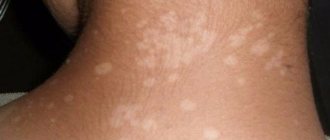Solar deficiency
Chronic vitamin D deficiency is typical for residents of the Northern Hemisphere of the Earth: Europe, North America and Russia. According to research by the Federal Research Center for Nutrition and Biotechnology, more than 90% of children in the Central and Northwestern parts of Russia and 60–80% of adults and elderly people in the Northwestern part of Russia are deficient in this substance.
Article on the topic Vitamin hunger. How to compensate for the lack of nutrients in the body? The normal concentration of vitamin D in blood serum is 50–150 nmol/l. The optimal level is 75 nmol/l; insufficient – less than 50 nmol/l. According to the International Osteoporosis Foundation 2020, Russians have one of the lowest levels of vitamin D in the blood - 25–49 nmol/l.
To compensate for the lack of this substance, it must be taken additionally. But in what doses depends on geography. For example, Japanese people aged 18–70 need 5.5 mcg, while residents of Germany, Switzerland and Austria need all 20 mcg. This substance can be synthesized naturally:
- consuming fish oil;
- 10–20 minutes of sunbathing (in areas south of 400 degrees north latitude from 11 a.m. to 2 p.m.), which, alas, is unsafe;
- eating 25 g of canned cod liver, 75 g of fatty sea fish, 150 g of herring or salmon.
Shiitake mushrooms are also rich in vitamin D².
By the way
“Sunshine” vitamin D is produced in the skin under the influence of ultraviolet radiation. It is important for: heart function, brain function, eye and skin health; immunity; secretion and metabolism of hormones, including insulin; good mood, energy, control over negative emotions (takes part in the synthesis of the neurotransmitter dopamine, which has a stimulating effect); bone strength, as it is responsible for the absorption of calcium, from which bone tissue is built. Without vitamin D, calcium simply cannot be absorbed, no matter how much you take it. Unfortunately, more than 125 million people in the world suffer from osteoporosis.
How common is vitamin C deficiency?
There are certain groups of people who are more at risk of ascorbic acid deficiency.
- People addicted to drugs or alcohol who are unable to eat a healthy, balanced diet.
- Those who follow very strict, restrictive diets.
- People with low incomes who tend not to buy foods high in vitamin C.
- Patients with a disease that affects the body's ability to digest and absorb food, such as Crohn's disease and ulcerative colitis.
- Older people who eat a less varied diet.
- Smokers. Smoking affects the absorption of vitamin C from foods, plus, those who smoke, vitamins are consumed in the body faster.
- Pregnant and breastfeeding women because they need more vitamin C.
Deterioration of reflexes
Thiamine deficiency can affect motor nerves.
If left untreated, damage to your nervous system caused by thiamine deficiency can cause changes in your reflexes.
Diminished or absent knee, ankle, and triceps reflexes are common, and as deficits develop, it can affect your coordination and ability to walk ().
This symptom is often documented in undiagnosed thiamine deficiency in children ().
Summary:
Damage caused by untreated thiamine deficiency can affect your motor nerves and cause worsening or loss of reflexes.
Tingling sensation in arms and legs
Abnormal tingling and burning in the upper and lower extremities is a symptom known as paresthesia.
The peripheral nerves that reach your arms and legs are highly dependent on the action of thiamine. In case of deficiency, peripheral nerve damage and paresthesia may occur.
In fact, patients experienced paresthesia in the initial stages of thiamine deficiency (, ,).
Additionally, studies in rats have shown that thiamine deficiency leads to peripheral nerve damage (, ).
Summary:
Thiamine contributes greatly to nerve health. Deficiency can cause paresthesia.
Deficiency Symptoms
At first there are no specific symptoms. Weakness, fatigue, shortness of breath and palpitations during physical activity - all this happens with a host of other diseases. How can we determine what caused these symptoms: a lack of vitamin or something else? First, think about whether there are real reasons for such problems. Secondly, analyze your diet - does it contain enough foods with vitamin B₁ (see table). If there is no reason, and the composition of the products is not ideal, most likely the problem is in the vitamin.
Article on the topic
We treat anemia. Why is vitamin B12 deficiency dangerous?
How does riboflavin deficiency manifest?
Deficiency of most vitamins causes symptoms that are very specific and characteristic only of that substance. However, riboflavin deficiency does not have clearly defined manifestations. The most common symptoms are weakness, constant fatigue and depression. They can relate to almost any disorder that is not associated with vitamin deficiency. Even very noticeable symptoms, such as skin irritation, can have other causes (vitamins for beautiful skin - here )
. Determining an accurate diagnosis is even more difficult, since riboflavin deficiency is often not the only problem. Deficiencies of this substance usually occur in combination with deficiencies of other nutrients, including the remaining B vitamins. For this reason, multivitamin and mineral supplements are often prescribed to correct the deficiency, rather than riboflavin alone. Symptoms of acute riboflavin deficiency, called aribiflavinosis, begin to appear after 3-4 months of extremely low intake of vitamin B3 (less than 0.5 mg per day). Initial symptoms are mainly related to the eyes and skin:
- excessive sensitivity to light
- tearing, burning and itching in the eyes
- blurred vision
- soreness and burning of the lips, mouth and tongue.
Sometimes the first signs of riboflavin deficiency are skin diseases. The reason why the skin is affected more than other organs, even at an early stage, is that the epidermis is characterized by very rapid cellular turnover. If the deficiency is not corrected, all symptoms become more pronounced and many new ones appear. Additional manifestations may include:
- Fatigue and lack of energy
- Dizziness
- Tired eyes
- Redness of the eyelids
- Cheilosis and stomatitis (cracks on the lips and cracks in the skin at the corners of the mouth)
- Skin detachments around the nose
- Seborrheic dermatitis, with itching, peeling
- Peeling skin around the nose, mouth, ears, forehead and scalp
- Oily skin rash in the nasolabial folds (laugh lines), scrotum, or vulva
- Glossitis (inflammation of the tongue, which may be red or purple)
- Digestive problems
- Hair loss
- Weight loss
- Anemia
- Proliferation of capillaries around the cornea of the eye
- Cataract
- Peripheral neuropathy
- Impaired functioning of the nervous system.
Severe deficiency may also result in decreased synthesis of vitamin B6 and, in turn, decreased synthesis of niacin (B5) from tryptophan. Then the symptoms of these deficits are added.
The role of vitamin C in the body
Vitamins are a group of substances that the body needs in small quantities to maintain health. Vitamin C is also called ascorbic acid. The body cannot produce it, so foods with this vitamin are an important component of the daily diet. Vitamin C is essential for the production of a substance called collagen, which is required to promote health and repair various tissues in the body.
- Skin and subcutaneous tissue;
- bones with cartilage;
- ligaments and tendons;
- walls of blood vessels;
- Teeth and gums.
Like vitamin E, vitamin C is a powerful antioxidant: it protects cells from free radical damage. They are by-products of normal cellular activity and participate in chemical reactions within cells. Some of these free radical reactions can cause tissue damage throughout a person's life.
Foods High in Thiamine (Vitamin B1)
A healthy, balanced diet that includes thiamine-rich foods can help prevent deficiency of this B vitamin.
The recommended daily intake (RDI) for thiamine is 1.2 mg for men and 1.1 mg for women ().
Below is a list of good sources of thiamine, as well as the % RDA for every 100 grams of product ():
- Beef liver : 13% of the RDI.
- Black beans, cooked : 16% of RDI.
- Lentils, cooked : 15% of RDI.
- Macadamia nuts, raw : 80% of RDI.
- Edamame (cooked unripe soybeans) : 13% of RDI.
- Pork tenderloin, cooked : 37% of RDI.
- Asparagus : 10% of RDI.
- Fortified breakfast cereals : 100% of RDI.
Many foods, including fish, meat, nuts and seeds, contain small amounts of thiamine. Most people can meet their thiamine needs without taking supplements.
In addition, in many countries, cereals, breads and grains are often fortified with thiamine.
Summary:
Thiamine is found in a variety of foods such as fortified breakfast cereals, macadamia nuts, pork, beans and lentils. The recommended daily intake of thiamine is 1.2 mg for men and 1.1 mg for women.
Symptoms of vitamin deficiency and hypovitaminosis of vitamin C
- Fatigue and weakness.
- Pain in muscles and joints.
- Light bruising.
- Spots that look like tiny red and blue stars on the skin.
More severe symptoms
- Dry skin.
- Split ends.
- Swelling and discoloration of gums.
- Sudden and unexpected bleeding from the gums.
- Nosebleeds.
- Poor wound healing.
- Weak resistance to infections.
- Bleeding in the joints, causing severe pain.
- Changes in tubular and spongy bones.
- Loss of teeth.
- Weight loss.
If the condition is not recognized and treated, vitamin C deficiency can also lead to shortness of breath, nervous disorders, high temperature (fever), and seizures (convulsions). Bleeding inside the brain and inside the heart sac can cause death in some people with untreated vitamin C deficiency. However, this is extremely rare.
Causes
Insufficient amounts of B vitamins in the human body are included in the ICD-10 list. Its code is 53.9. Considering the fact that these elements are dissolved in water, they are quite quickly eliminated from the human body with water. For this reason, it is extremely important to replenish their reserves daily. However, it often happens that the reason for the lack of these substances lies in the following factors:
- constant stress, being in a depressive disorder;
- gastritis, colitis;
- disruptions in the functioning of the endocrine system;
- the use of drugs from medicinal pharmacological groups for a long time;
- insufficient stomach acidity;
- using oral contraceptives for a long period of time;
- increased physical activity;
- pregnancy in women;
- unbalanced diet.
All of these factors influence the fact that vitamin substances begin to be processed faster by the body, due to which their deficiency occurs. Sometimes bringing your diet back to normal and adhering to a healthy lifestyle improves the situation, however, with an advanced form of deficiency of vitamin B elements, consultation with a specialist is required.









